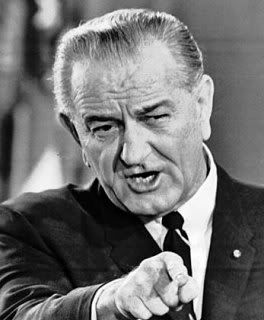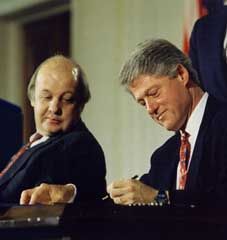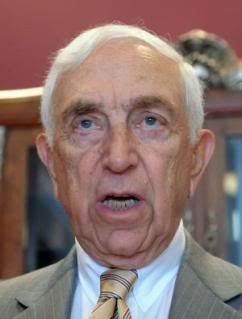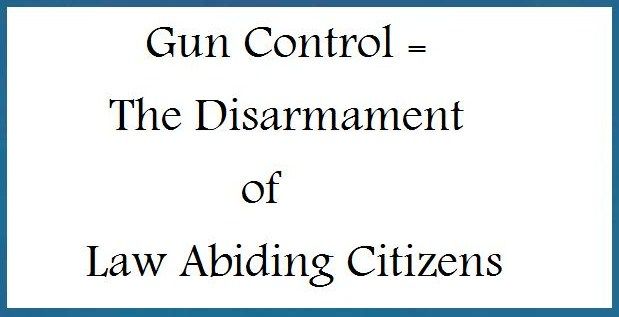Post by "DoubleAction" on Oct 9, 2014 18:59:29 GMT -5
On October 22, 1968, Lyndon Johnson signed the Gun Control Act of 1968, one of the largest and most far reaching federal gun control laws in American history. This act represented a dramatic increase in federal power over Our Second Amendment Rights.. Much of the motivation for this large expansion of federal gun regulations came as a response to the murders of John F. Kennedy, Robert F. Kennedy, and Martin Luther King.



LBJ was the one who signed The Gun Control Act of 1968
....This Law is became the foundation for all of the Gun Control Laws that followed in it's path
....This Law is became the foundation for all of the Gun Control Laws that followed in it's path

Lyndon B. Johnson
676 - Annual Message to the Congress on the State of the Union.
January 14, 1969
In the Safe Streets Act of 1968, Congress determined "To assist state and local governments in reducing the incidence of crime."
This year I am proposing that the Congress provide the full $300 million that the Congress last year authorized to do just that.
I hope the Congress will put the money where the authorization is.
I believe this is an essential contribution to justice and to public order in the United States. I hope these grants can be made to the States and they can be used effectively to reduce the crime rate in this country.
But all of this is only a small part of the total effort that must be made--I think chiefly by the local governments throughout the Nation--if we expect to reduce the toll of crime that we all detest.
Frankly, as I leave the Office of the Presidency, one of my greatest disappointments is our failure to secure passage of a licensing and registration act for firearms. I think if we had passed that act, it would have reduced the incidence of crime. I believe that the Congress should adopt such a law, and I hope that it will at a not too distant date.
676 - Annual Message to the Congress on the State of the Union.
January 14, 1969
In the Safe Streets Act of 1968, Congress determined "To assist state and local governments in reducing the incidence of crime."
This year I am proposing that the Congress provide the full $300 million that the Congress last year authorized to do just that.
I hope the Congress will put the money where the authorization is.
I believe this is an essential contribution to justice and to public order in the United States. I hope these grants can be made to the States and they can be used effectively to reduce the crime rate in this country.
But all of this is only a small part of the total effort that must be made--I think chiefly by the local governments throughout the Nation--if we expect to reduce the toll of crime that we all detest.
Frankly, as I leave the Office of the Presidency, one of my greatest disappointments is our failure to secure passage of a licensing and registration act for firearms. I think if we had passed that act, it would have reduced the incidence of crime. I believe that the Congress should adopt such a law, and I hope that it will at a not too distant date.
Revisions to the Gun Control Act of 1968
The Clinton Gun Ban
Bill Clinton Sign Into Law, The Brady Bill
On November 30, 2008


Frank Lautenberg - Democrat
The Domestic Violence Offender Gun Ban (1996) was an amendment to the Omnibus Consolidated Appropriations Act of 1997 which was passed by the 104th US Congress in the Fall of 1996. Officially known as 'Gun Ban for Individuals Convicted of a Misdemeanor Crime of Domestic Violence' -- 18 U.S.C. § 922(g)(9)'[1], 'Public Law 104-208'[2] and is often referred to as the Lautenberg Amendment after its sponsor, Frank Lautenberg.
The Lautenberg Act conflicts with State Laws that are in effect that do not impose a statute under federal law, and or state laws preventing persons from owning a firearm, ammunition, or possessing of such items.
In Example: A person convicted of Domestic Violene in Texas is charged with and convicted of a Misdemeanor Charge Class A. A person convicted of Domestic Violence in very few other states Domestic Violence is charged as a felony.
In all states a violation of a protective order, as well as any other act of Domestic Violence while a protective order is in place is Considered a Felony and the Charges that were initially filed will automatically become a felony charge of Domestic Violence.
The Lautenberg Amendment and or Act does not specify to whether or not a Felony Conviction of Domestic Violence whether by plea, or by Deferred Adjudication or a Misdemeanor Charge of Domestic Violence should fall under the act.
The Lautenberg Amendment excludes all persons convicted of any type of Domestic Violence, or the Subject of a Magistrates Protective order from owning or possessing any type of Firearm, Ammunition, and or other types of weapons that involve a projectile device.
The Lautenberg Act conflicts with State Laws that are in effect that do not impose a statute under federal law, and or state laws preventing persons from owning a firearm, ammunition, or possessing of such items.
In Example: A person convicted of Domestic Violene in Texas is charged with and convicted of a Misdemeanor Charge Class A. A person convicted of Domestic Violence in very few other states Domestic Violence is charged as a felony.
In all states a violation of a protective order, as well as any other act of Domestic Violence while a protective order is in place is Considered a Felony and the Charges that were initially filed will automatically become a felony charge of Domestic Violence.
The Lautenberg Amendment and or Act does not specify to whether or not a Felony Conviction of Domestic Violence whether by plea, or by Deferred Adjudication or a Misdemeanor Charge of Domestic Violence should fall under the act.
The Lautenberg Amendment excludes all persons convicted of any type of Domestic Violence, or the Subject of a Magistrates Protective order from owning or possessing any type of Firearm, Ammunition, and or other types of weapons that involve a projectile device.
The nation's police forces are up in arms over a new federal gun control law that could strip thousands of them of their guns and jobs. Most police organizations have enthusiastically supported every gun control scheme President Clinton has put forward. Few Americans realized that such legislation almost always contained an exemption for the policemen themselves regarding their official duties. But poetic justice may finally have arrived. Unfortunately, its arrival also heralds the decimation of constitutional rights of a million or more other Americans.
Last September 28, as part of a massive appropriations bill, Congress passed the so-called Lautenberg Act, which greatly increases the number of Americans prohibited by federal law from owning firearms. For the first time, thanks to an amendment by Georgia's Rep. Bob Barr, law-enforcement officials are not exempt from the nation's gun control laws.
The Lautenberg Act prohibits anyone from owning a gun or possessing any ammunition who has ever been convicted of a misdemeanor involving the use or attempted use of physical force or the threatened use of a deadly weapon against a spouse, child, or intimate partner. (People with any felony conviction have been prohibited from owning guns since 1968.) Any person with such a misdemeanor on his record who is found in possession of a gun or even of a single bullet can face a $250,000 fine and 10 years in prison — longer than the average convicted murderer serves in this country.
Gerald Arenberg, executive director of the National Association of Chiefs of Police, observed that the act "has thrown the whole world into confusion for cops." Victor Kappeler, director of the Criminal Justice Graduate Program at Eastern Kentucky University, estimated that if accurate reporting of all such police domestic violence occurred, and if all such assaults were fully prosecuted, 10% of the nation's law-enforcement officials (70,000 individuals) could be found guilty and thus banned from possessing a firearm under the new law.
Last September 28, as part of a massive appropriations bill, Congress passed the so-called Lautenberg Act, which greatly increases the number of Americans prohibited by federal law from owning firearms. For the first time, thanks to an amendment by Georgia's Rep. Bob Barr, law-enforcement officials are not exempt from the nation's gun control laws.
The Lautenberg Act prohibits anyone from owning a gun or possessing any ammunition who has ever been convicted of a misdemeanor involving the use or attempted use of physical force or the threatened use of a deadly weapon against a spouse, child, or intimate partner. (People with any felony conviction have been prohibited from owning guns since 1968.) Any person with such a misdemeanor on his record who is found in possession of a gun or even of a single bullet can face a $250,000 fine and 10 years in prison — longer than the average convicted murderer serves in this country.
Gerald Arenberg, executive director of the National Association of Chiefs of Police, observed that the act "has thrown the whole world into confusion for cops." Victor Kappeler, director of the Criminal Justice Graduate Program at Eastern Kentucky University, estimated that if accurate reporting of all such police domestic violence occurred, and if all such assaults were fully prosecuted, 10% of the nation's law-enforcement officials (70,000 individuals) could be found guilty and thus banned from possessing a firearm under the new law.


